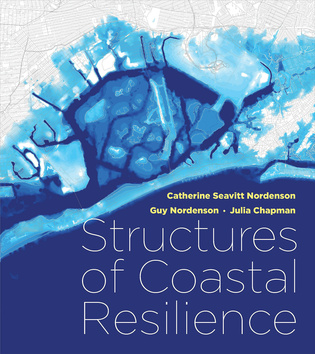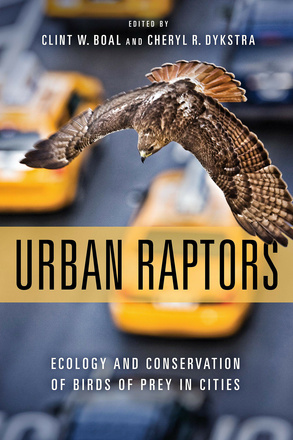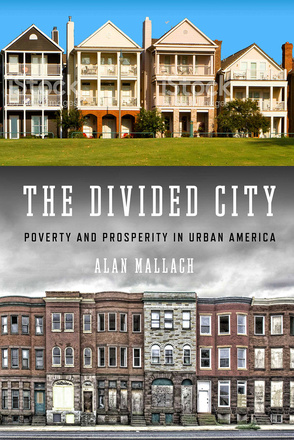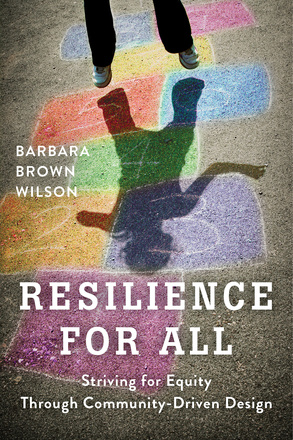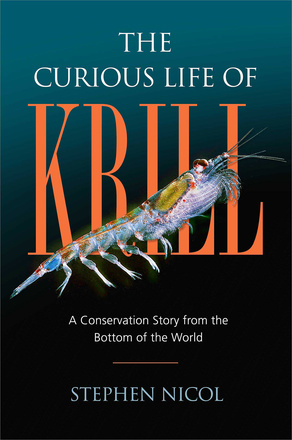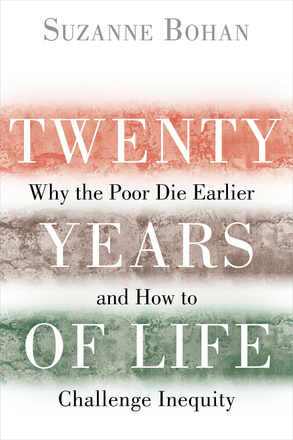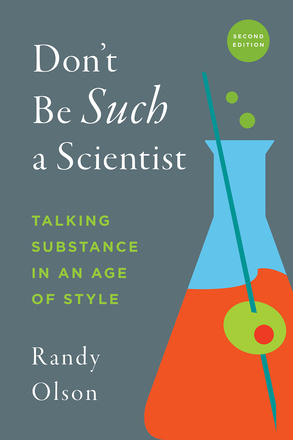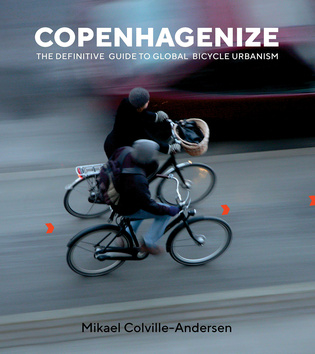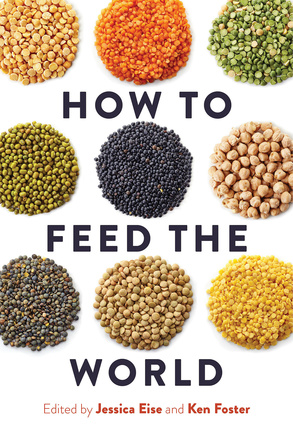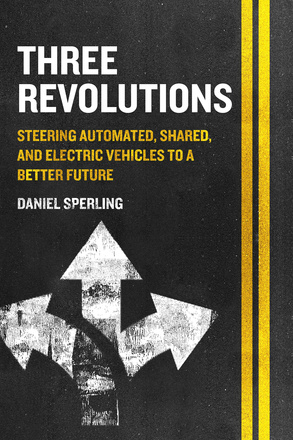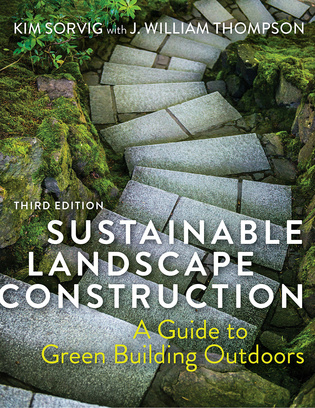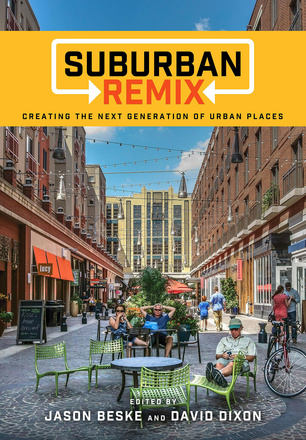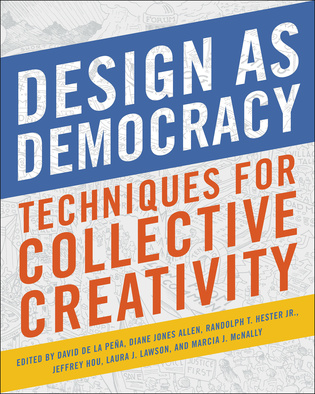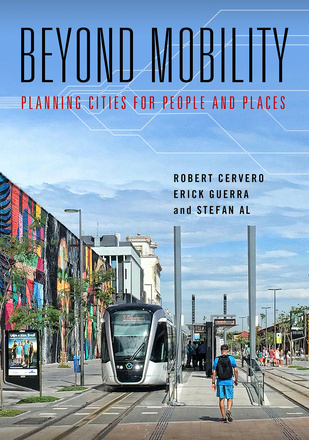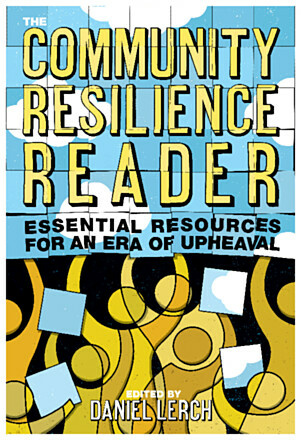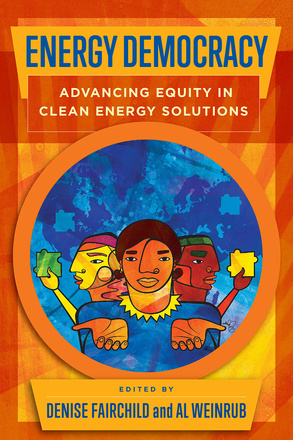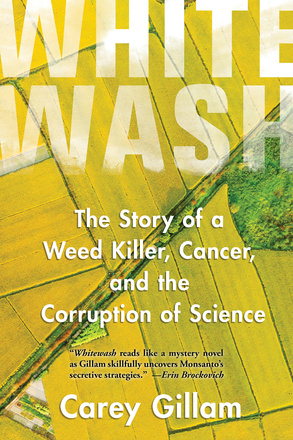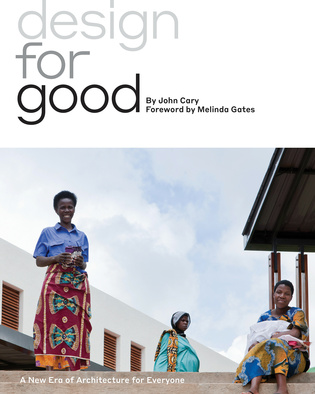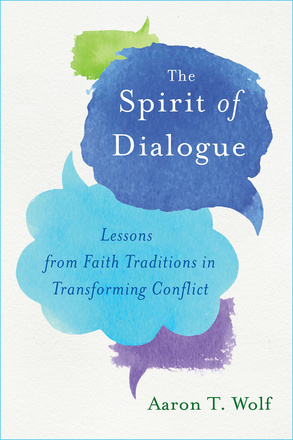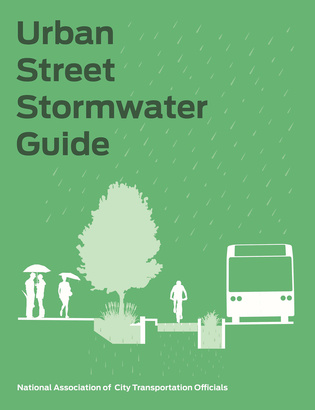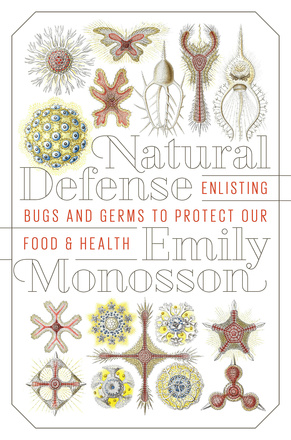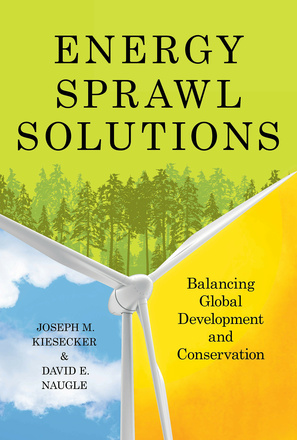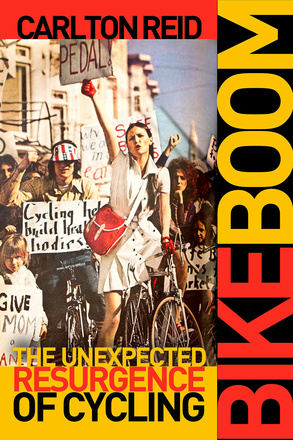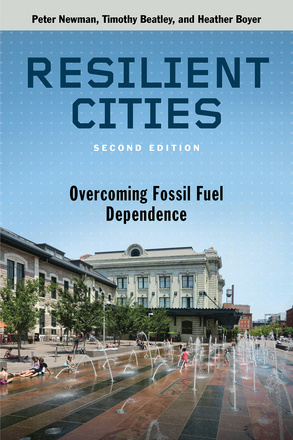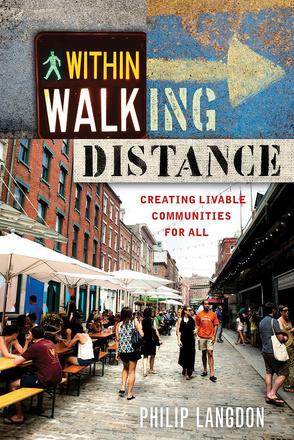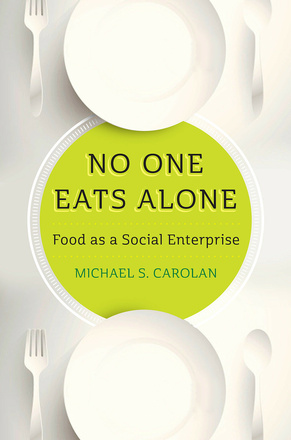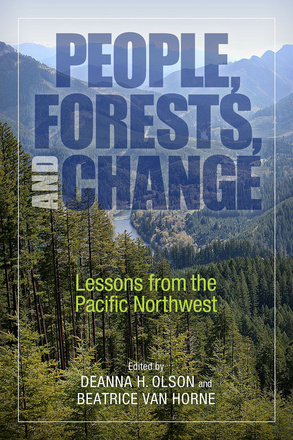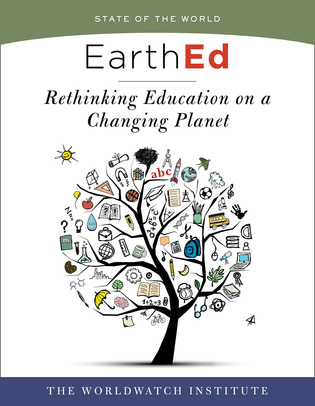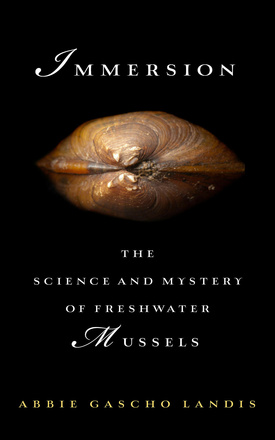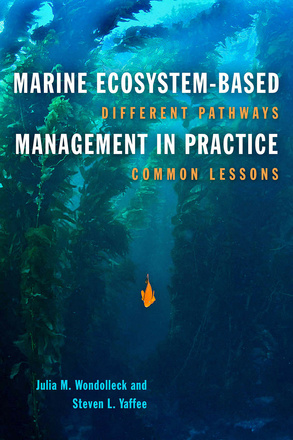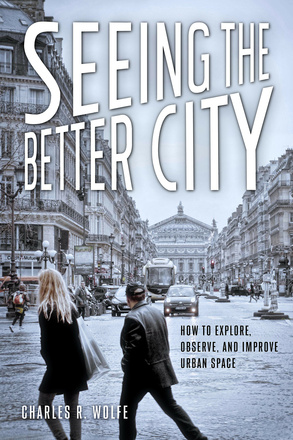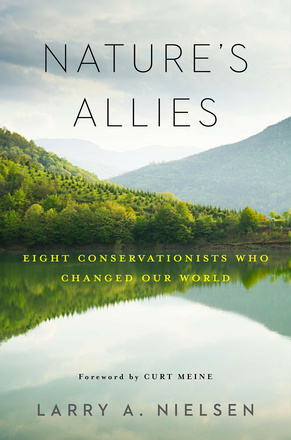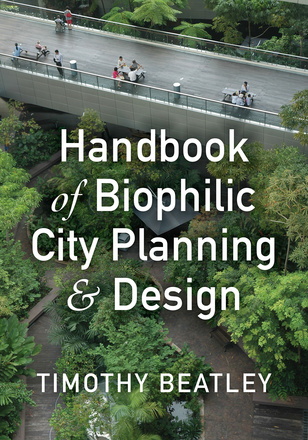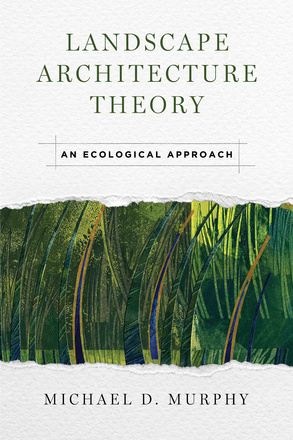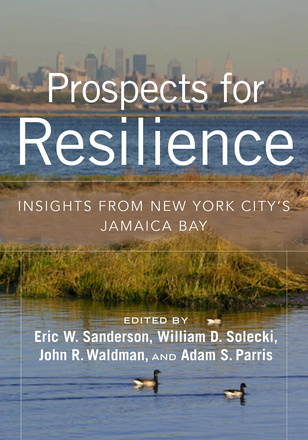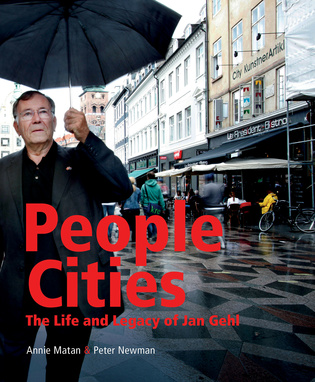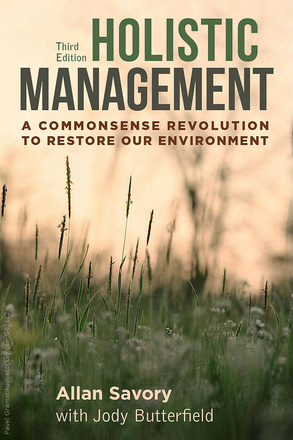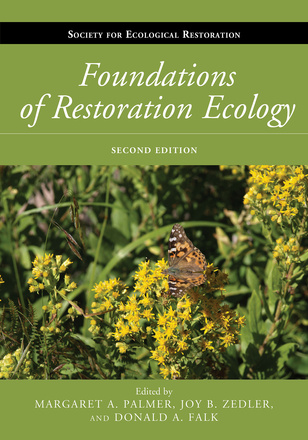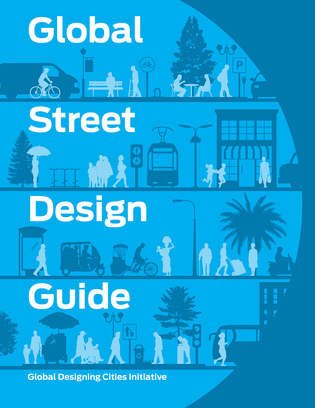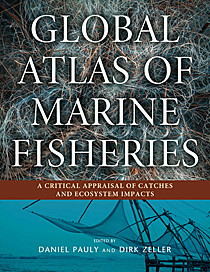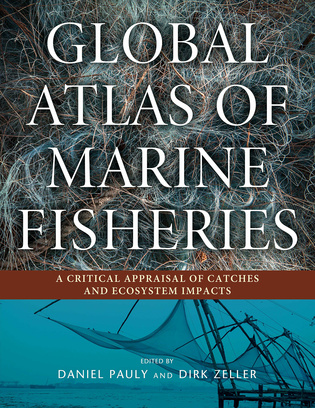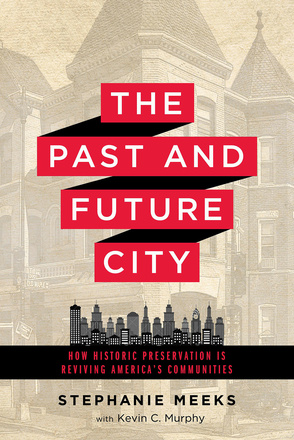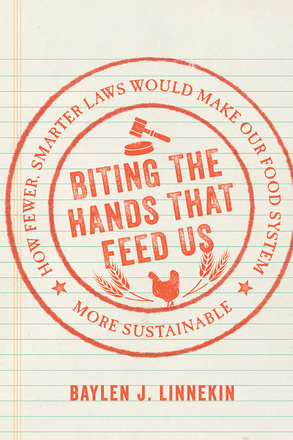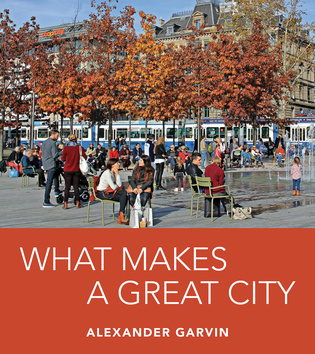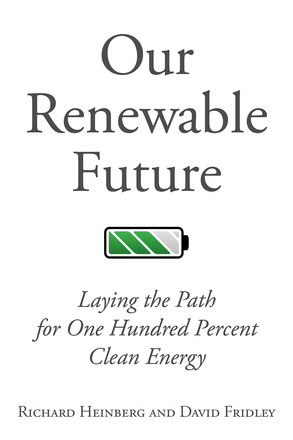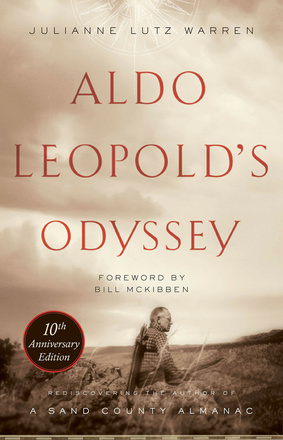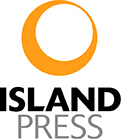
Island Press began with a simple idea: knowledge is power—the power to imagine a better future and find ways for getting us there. Founded in 1984, Island Press’ mission is to provide the best ideas and information to those seeking to understand and protect the environment and create solutions to its complex problems.
Structures of Coastal Resilience
Urban Raptors
Ecology and Conservation of Birds of Prey in Cities
Among researchers, urban green space planners, wildlife management agencies, birders, and informed citizens alike, Urban Raptors will foster a greater understanding of birds of prey and an increased willingness to accommodate them as important members, not intruders, of our cities.
The Divided City
Poverty and Prosperity in Urban America
Resilience for All
Striving for Equity Through Community-Driven Design
The Curious Life of Krill
A Conservation Story from the Bottom of the World
Krill. It’s a familiar word that conjures oceans, whales, and swimming crustaceans. Scientists say they are one of most abundant animals on the planet. But few can accurately describe krill or explain their ecological importance. Eminent krill scientist Stephen Nicol wants us to know more about these enigmatic creatures and how we can protect them as Antarctic ice melts. This engaging account takes us to the Southern Ocean to learn firsthand the difficulties and rewards of studying krill in their habitat. From his early education about the sex lives of krill in the Bay of Fundy to a krill tattoo gone awry, Nicol uses humor and personal stories to bring the biology and beauty of krill alive.
Twenty Years of Life
Why the Poor Die Earlier and How to Challenge Inequity
Bohan chronicles a bold experiment to challenge that inequity. The California Endowment, one of the nation’s largest health foundations, is upending the old-school, top-down charity model and investing $1 billion over ten years to help distressed communities advocate for their own interests.
With compassion and insight, Bohan shares stories of students and parents, former street shooters, urban farmers, and a Native American tribe who are tapping into their latent political power to make their neighborhoods healthier. Their stories will fundamentally change how we think about the root causes of disease and the prospects for healing.
Don't Be Such a Scientist, Second Edition
Talking Substance in an Age of Style
Don’t Be Such a Scientist, Second Edition is a cutting and irreverent manual to speaking out and making your voice heard in an age of attacks on science. Invaluable for anyone looking to break out of the boxes of academia or research, Olson’s writing will inspire readers to “make science human”—and to enjoy the ride along the way.
Copenhagenize
The Definitive Guide to Global Bicycle Urbanism
Building on his popular blog of the same name, Copenhagenize offers entertaining stories, vivid project descriptions, and best practices, alongside beautiful and informative visuals to show how to make the bicycle an easy, preferred part of everyday urban life.
How to Feed the World
Nature's Allies
Eight Conservationists Who Changed Our World
Three Revolutions
Steering Automated, Shared, and Electric Vehicles to a Better Future
Three Revolutions offers policy recommendations and provides insight and knowledge that could lead to wiser choices by all. With this book, Sperling and his collaborators hope to steer these revolutions toward the public interest and a better quality of life for everyone.
Sustainable Landscape Construction, Third Edition
A Guide to Green Building Outdoors
Sustainable Landscape Construction is part of the canon of landscape construction texts, and with this update, remains a visionary, one of a kind reference for professionals and students.
Suburban Remix
Creating the Next Generation of Urban Places
Suburban Remix brings together experts in planning, urban design, real estate development, and urban policy to demonstrate how suburbs can use growing demand for urban living to renew their appeal as places to live, work, play, and invest. The case studies and analysis show how compact new urban places are being created in suburbs to produce health, economic, and environmental benefits, and contribute to solving a growing equity crisis.
Design as Democracy
Techniques for Collective Creativity
Beyond Mobility
Planning Cities for People and Places
There are many examples of communities across the globe working to create a seamless fit between transit and surrounding land uses, retrofit car-oriented suburbs, reclaim surplus or dangerous roadways for other activities, and revitalize neglected urban spaces like abandoned railways in urban centers.
The authors draw on experiences and data from a range of cities and countries around the globe in making the case for moving beyond mobility.
The Community Resilience Reader
Essential Resources for an Era of Upheaval
From Post Carbon Institute, the producers of the award-winning The Post Carbon Reader, The Community Resilience Reader is a valuable resource for community leaders, college students, and concerned citizens.
Energy Democracy
Advancing Equity in Clean Energy Solutions
Energy democracy tenders a response and joins the environmental and climate movement with broader movements for social and economic change in this country and around the world.
Energy Democracy brings together racial, cultural, and generational perspectives to show what an alternative, democratized energy future can look like. The book will inspire others to take up the struggle to build the energy democracy movement.
Whitewash
The Story of a Weed Killer, Cancer, and the Corruption of Science
"Reads like a mystery novel as Gillam skillfully uncovers Monsanto's secretive strategies."—Erin Brockovich
"A damning picture...Gillam expertly covers a contentious front." —Publishers Weekly
"A must-read." —Booklist
"Hard-hitting, eye-opening narrative." —Kirkus
In Whitewash, veteran journalist Carey Gillam uncovers one of the most controversial stories in the history of food and agriculture. Gillam explores the global debate over the safety of a herbicide so pervasive that it is found in our cereals, snacks, and even in our urine. Known as Monsanto’s Roundup by consumers and as glyphosate by scientists, the world’s most popular weed killer is sold as safe enough to drink, but Gillam’s research shows that message has been carefully crafted to conceal a host of dangers. Whitewash is more than an exposé about the hazards of one chemical. It’s a story of power, politics, and the deadly consequences of putting corporate interests ahead of public safety.
Design for Good
A New Era of Architecture for Everyone
In Design for Good, John Cary offers character-driven, real-world stories about projects across the globe that are designed and created with and for the people who will use them. The book reveals a new understanding of the ways that design shapes our lives and gives professionals and interested citizens the tools necessary to seek out and demand designs that dignify.
From Rwanda’s Butaro Hospital to Kalamazoo College’s Arcus Center for Social Justice Leadership, the examples in the book show what is possible when design is a collaborative, dignified, empathic process. Cary draws from his own experience as well as dozens of interviews to show not only that everyone deserves good design, but how it can be achieved.
The Spirit of Dialogue
Lessons from Faith Traditions in Transforming Conflict
Urban Street Stormwater Guide
Building on the successful NACTO urban street guides, the Urban Street Stormwater Guide provides the best practices for the design of GSI along transportation corridors. The state-of-the-art solutions in this guide will assist urban planners and designers, transportation engineers, city officials, ecologists, public works officials, and others interested in the role of the built urban landscape in protecting the climate, water quality, and natural environment.
Natural Defense
Enlisting Bugs and Germs to Protect Our Food and Health
Energy Sprawl Solutions
Balancing Global Development and Conservation
This contributed volume features case studies from countries around the world, each describing a different energy sector and the way they have successfully maximized biodiversity protection. This book provides a needed guide for elected officials, industry representatives, NGOs and community groups who have a stake in sustainable energy-development planning.
Bike Boom
The Unexpected Resurgence of Cycling
In Bike Boom, journalist Carlton Reid uses history to shine a spotlight on the present and demonstrates how bicycling has the potential to grow even further, if the right measures are put in place by the politicians and planners of today and tomorrow. He explores the benefits and challenges of cycling, the roles of infrastructure and advocacy, and what we can learn from cities that have successfully supported and encouraged bike booms. In this entertaining and thought-provoking book, Reid sets out to discover what we can learn from the history of bike “booms.”
Resilient Cities, Second Edition
Overcoming Fossil Fuel Dependence
Resilient Cities, Second Edition reveals how cities around the world are working to become more resilient. The authors offer stories, insights, and inspiration for urban planners, policymakers, and professionals interested in creating more sustainable, equitable, and, eventually, regenerative cities. Most importantly, the book is about overcoming fear and generating hope in our cities. The challenge of resilient cities is to claim a different future that helps us regenerate the whole planet.
Within Walking Distance
Creating Livable Communities for All
No One Eats Alone
Food as a Social Enterprise
No One Eats Alone argues that human connections are essential for creating a healthy, equitable, and sustainable food system. Michael Carolan shares the stories of individuals who are working to become citizens first and consumers second.
People, Forests, and Change
Lessons from the Pacific Northwest
People, Forests, and Change: Lessons from the Pacific Northwest, considers the nature of forests in flux and how to balance the needs of forests and rural communities. In the US northwest, forest ecosystem management has been underway for two decades, and key lessons are emerging. This book brings together ideas for policy makers, managers, students, and conservationists seeking to manage forests conscientiously and assure their long-term viability.
EarthEd (State of the World)
Rethinking Education on a Changing Planet
Immersion
The Science and Mystery of Freshwater Mussels
"Eloquent treatise...Landis's book is as much call to action as paean to mesmerizing molluscs." —Nature
"Rich, accurate, and moving." —New Scientist
"A lyrical love letter to the imperiled freshwater mussel." —Science
Abbie Gascho Landis first fell for freshwater mussels while pregnant and submerged in an Alabama creek, watching a female filter the water through her body while her gills bulged with offspring. In that moment of connection, Landis became a mussel groupie, obsessed with learning more about the creatures’ hidden lives. She isn’t the only fanatic; the shy mollusks, so vital to the health of rivers around the world, have a way of inspiring unusual devotion. In Immersion: The Science and Mystery of Freshwater Mussels, Landis brings readers to a hotbed of mussel diversity, the American Southeast, to seek mussels where they eat, procreate, and, too often, perish. Landis shares her journey from perilous river surveys to dry streambeds and into laboratories where endangered mussels are raised one life at a time.
Mussels have much to teach us about the health of the watershed if we step into the creek and take a closer look at their lives. In turns joyful and sobering, Immersion is an invitation to see rivers from a mussel’s perspective, a celebration of the wild lives visible to those who learn to search.
Marine Ecosystem-Based Management in Practice
Different Pathways, Common Lessons
Marine Ecosystem-Based Management in Practice is the first practical guide for the marine conservation realm. In a unique collection of case studies, the authors showcase successful collaborative approaches to ecosystem-based management. This book offers a hopeful message to policy makers, managers, practitioners, and students who will find this an indispensable guide to field-tested, replicable marine conservation management practices that work.
Seeing the Better City
How to Explore, Observe, and Improve Urban Space
Through clear prose and vibrant photographs, Charles Wolfe shows how to catalog the influences of urban form, public transportation, and other basic city elements. He then shares insights into how to use recorded observations to contribute to better planning and design decisions. Wolfe calls this the “urban diary” approach, and highlights how the perspective of the observer is key to understanding the dynamics of urban space. He concludes by offering guidance on how to use carefully recorded and organized observations as a tool to create change in urban planning conversations and practice.
Nature's Allies
Eight Conservationists Who Changed Our World
Handbook of Biophilic City Planning & Design
The Handbook of Biophilic City Planning & Design offers practical advice and inspiration for ensuring that nature in the city is more than infrastructure—that it also creates an emotional connection to the earth and promotes well-being among urban residents. Divided into six parts, the Handbook introduces key ideas about biophilic urbanism, highlights urban biophilic innovations in more than a dozen global cities, and concludes with lessons and resources for advancing urban biophilia.
As the most comprehensive reference on the emerging field of biophilic urbanism, the Handbook is essential reading for students and practitioners looking to place nature at the core of their planning and design ideas.
Landscape Architecture Theory
An Ecological Approach
Drawing on his extensive career in teaching and practice, Michael Murphy begins with an examination of influences on landscape architecture. He then delves into systems and procedural theory, while making connections to ecosystem and human factors, the design process, and more. He concludes by showing how a strong theoretical understanding can be applied to practical, every-day decision making and design work to create more holistic, sustainable, and creative landscapes.
Prospects for Resilience
Insights from New York City's Jamaica Bay
Ranging from a framework for understanding resilience practice in urban watersheds to essential tools for research and practice, Prospects for Resilience is filled with information and advice for scientists, urban planners, students, and others who are working to create more resilient cities that work with, not against, nature.
People Cities
The Life and Legacy of Jan Gehl
People Cities tells the inside story of how Gehl learned to study urban spaces and implement his people-centered approach in car-dominated cities. It discusses the work, theory, life, and influence of Gehl from the perspective of those who have worked with him in cities across the globe. It will inspire anyone who wants to create vibrant, human-scale cities and understand the ideas and work of the architect who has most influenced urban design.
Design Professional's Guide to Zero Net Energy Buildings
Holistic Management, Third Edition
A Commonsense Revolution to Restore Our Environment
In this third edition of Holistic Management, Savory and coauthor Jody Butterfield update and streamline guidelines to reverse desertification, halt climate change, retain biodiversity, and eliminate causes of global human impoverishment. Reorganized chapters streamline concepts and new color photographs showcase examples of land restored by properly managed livestock.
Holistic Management is written for new generations of ranchers, farmers, pastoralists, eco- and social entrepreneurs, and government agencies, NGOs, and development professionals working to address global environmental and social degradation.
Foundations of Restoration Ecology
Foundations of Restoration Ecology, Second Edition, has been dramatically updated to reflect new research in restoration ecology, including new sections on specific ecosystem processes, including hydrology, nutrient dynamics, and carbon. Case studies describe real-life restoration scenarios in North and South America, Europe, and Australia. Lists at the end of each chapter summarize new theory and practical applications.
Written by acclaimed researchers in the field, this book provides practitioners as well as graduate and undergraduate students with a solid grounding in the newest advances in ecological science and theory.
Global Street Design Guide
This innovative guide will inspire leaders, inform practitioners, and empower communities to realize the potential in their public space networks. It will help cities unlock the potential of streets as safe, accessible, and economically sustainable places.
Global Atlas of Marine Fisheries
A Critical Appraisal of Catches and Ecosystem Impacts
Global Atlas of Marine Fisheries
A Critical Appraisal of Catches and Ecosystem Impacts
The Past and Future City
How Historic Preservation is Reviving America's Communities
This book is for anyone who cares about cities, places, and saving America’s diverse stories in a way that will bring us together and help us better understand our past, present, and future.
Biting the Hands that Feed Us
How Fewer, Smarter Laws Would Make Our Food System More Sustainable
Today in the United States, laws exist at all levels of government that exacerbate problems such as food waste, hunger, inhumane livestock conditions, and disappearing fish stocks. Baylen Linnekin argues that government rules often handcuff America’s most sustainable farmers, producers, sellers, and consumers, while rewarding those whose practices are anything but sustainable. Biting the Hands that Feed Us introduces readers to the perverse consequences of many food rules, from crippling organic farms to subsidizing monocrops. Linnekin also explores what makes for a good law—often, he explains, these emphasize good outcomes over rigid processes. But he urges readers to reconsider efforts to regulate our way to a greener food system, calling instead for empowerment of those working to feed us—and themselves—sustainably.
What Makes a Great City
What makes a great city? City planner and architect Alexander Garvin set out to answer this question by observing cities, largely in North America and Europe, with special attention to Paris, London, New York, and Vienna.
For Garvin, greatness is about what people who shape cities can do to make a city great. A great city is a dynamic, constantly changing place that residents and their leaders can reshape to satisfy their demands. Most importantly, it is about the interplay between people and public realm, and how they have interacted throughout history to create great cities.
What Makes a Great City will help readers understand that any city can be changed for the better and inspire entrepreneurs, public officials, and city residents to do it themselves.
Restoring Neighborhood Streams
Planning, Design, and Construction
What has been missing, however, is detailed guidance for restoration practitioners wanting to undertake similar urban stream restoration projects that worked with, rather than against, nature. This book presents the author’s thirty years of practical experience managing long-term stream and river restoration projects in heavily degraded urban environments. Although the case studies are local, the principles, methods, and tools are universal, and can be applied in almost any city in the world.
Climate Change in Wildlands
Pioneering Approaches to Science and Management
Climate Change in Wildlands proposes a new kind of collaboration between scientists and managers—a science-derived framework and common-sense approaches for keeping parks and protected areas healthy on a rapidly changing planet.
Our Renewable Future
Laying the Path for One Hundred Percent Clean Energy
The next few decades will see a profound energy transformation throughout the world, as we shift from fossil fuels to rely primarily on renewable sources like solar, wind, biomass, and geothermal power. What might a 100% renewable future look like, and what challenges might we face in the transition? In Our Renewable Future, energy expert Richard Heinberg and scientist David Fridley explore the challenges and opportunities presented by the shift to renewable energy. Beginning with a comprehensive overview of our current system, the authors survey issues of energy supply and demand in key components of society, including electricity generation, transportation, buildings, and manufacturing. The book concludes with a discussion of energy and equity and a summary of key lessons and steps forward at the individual, community, and national level. Our Renewable Future is a clear-eyed and urgent guide to the renewable energy transformation that will be a crucial resource for policymakers and energy activists.

